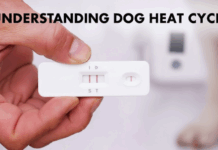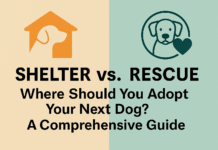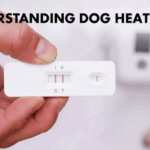Last Updated on November 22, 2023 by Dogs Vets
5 Tips for Preparing for Dog Euthanasia at Home
Saying goodbye to a cherished canine companion is an emotionally challenging experience. The emotional complexity increases more when you decide to euthanize the dog at home.
Despite the difficulty, it’s still the best way to part ways with a beloved furry friend, as they’ll be in a familiar environment.
As you plan for a peaceful farewell, there are essential aspects to consider for a perfect preparation. Here are five tips to consider.
Consult with Your Veterinarian
Aside from offering medical services for pets, vets are also excellent sources of support and guidance during such times. They will offer insights into the whole process, giving you the proper recommendations depending on the dog’s needs.
Share with them relevant information, such as the health condition and age of the pet. Through the discussions, it will be clear how suitable it is to proceed with a euthanasia procedure.
You will get the assurance that your decision is the best for you and the family, which brings peace of mind.
Create a Calm and Comfortable Environment
The surroundings need to be peaceful and conducive in every aspect. From the correct lighting to being free from disturbances and noise, look for every way to keep the space comfortable. Consider the dog’s preferences on spots and areas within the home, making them feel at ease.
You can also enhance comfort by adding favorite items such as toys and blankets. If the pet has a customized kennel or bed, this is the best time to use it.
You may also want to play their favorite music or provide comforting scents, like lavender or chamomile. The objective is to add more serenity to the space, reducing stress significantly for the dog.
Choose the Best Euthanasia Professionals
It is crucial to identify the most reliable professionals to perform the euthanasia procedure. Look for a Zen Dog Vet with experience in handling such procedures at home and with end-of-life care.
Confirm with them how they intend to carry out everything, from administering sedatives to putting down the dog.
Consider the cost and compare it with other providers before making the final decision. It’s also necessary to ensure that these professionals are licensed and certified for your peace of mind.
You can also opt to have other family members or friends present during the procedure for additional support.
Seek Emotional Support
Your mental wellness also matters as you prepare for the emotionally-charging process. Reach out to your close circle of friends and family who understand your history with the pet. They will understand your situation and be more supportive and encouraging during such moments.
Share your feelings and concerns with them, which will relieve stress. Some may have experience with such situations and can give you some motivating stories on their journey after parting ways with their pet.
Aftercare Decisions
Before the procedure, decide on aftercare arrangements for your pet’s remains. You may choose cremation, burial, or other memorial options. If you opt for cremation, decide whether you want the ashes returned.
Your vet can guide you through these decisions and may offer services or recommend local providers. Having these arrangements in place beforehand can ease some stress on the day. You may also choose to create a scrapbook with photos and memories.
It would help you preserve their legacy and cherish the memories you had together.
Endnote
While planning for a dog euthanasia is heart-wrenching, with the right plans, you can change this. Think about the space and how you can make it calmer and more comfortable for the pet.
Most importantly, seek professional help so that the procedure will proceed flawlessly. Look at their aftercare plans and professional level.
Fact Check
We strive to provide the latest valuable information for pet lovers with accuracy and fairness. If you would like to add to this post or advertise with us, don’t hesitate reach us. If you see something that doesn’t look right, contact us!

















